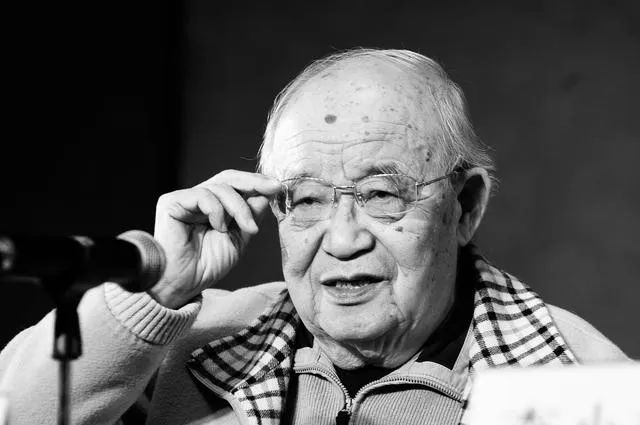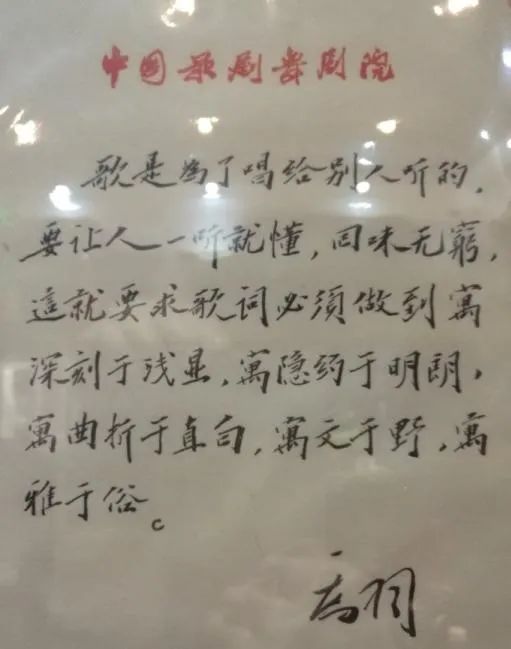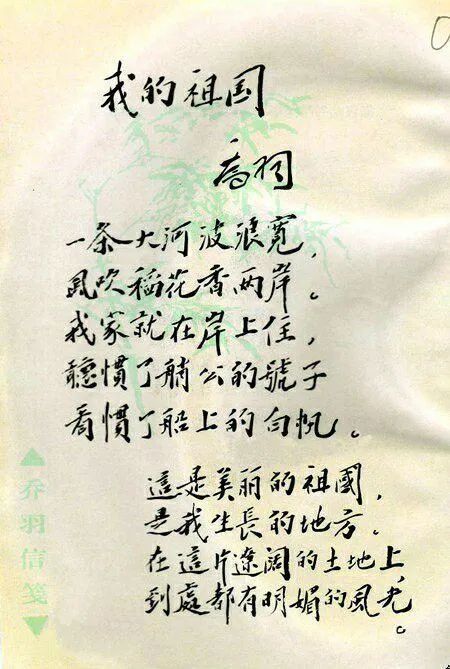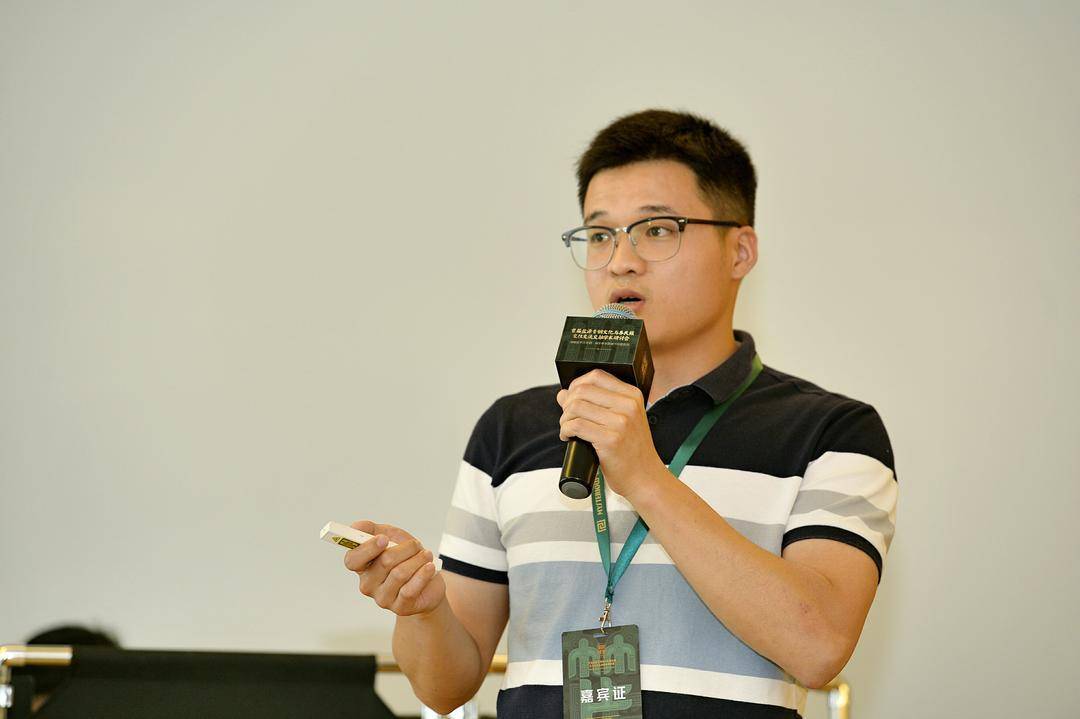Recalling Mr. Qiao Yu's old things for "My Motherland"
Author:China Youth Network Time:2022.06.20
The fame writer Qiao Yu died in Beijing on June 19.

Mr. Qiao Yu, born in Jining, Shandong Province on November 16, 1927, is a writer and playwright. The masterpieces include "My Motherland", "Let's Swing up the Double Patsses", "Said Shanxi Scenery", "Sister Liu", "Unforgettable Tonight" and so on.
The editor sorted out his old things for "My Motherland" and remembered Mr. Qiao Yu with readers.
In 1956, the film "Shang Ganling", which described the War of Resistance Acts, and the DPRK, was filmed. Director Shamun found the familiar composer Liu Chi and asked him to create music for the movie. Liu Chi recommended the writer Qiao Yu to Shamun, and asked him to write lyrics for the movie.
At that time, in order to create a film literature script with the theme of the lives of the Soviet Union and children during the Second Domestic Revolutionary War, Qiao Yu experienced life in the former Central Soviet Area in the south of Gan and the western Fujian area. stage. However, the telegram of Shamun has been urging Qiao Yu and asked him to rush to the Changchun Film Studio to create an episode for the film "Shang Ganling".

Qiao Yu, who couldn't let go of his work, repeatedly refused, but did not expect to receive a telegram of Semon with a number of pages. In this telegram, not only did Qiao Yu arrange the starting route, but also used three "cut" characters and three exclamation marks in the last consecutive. It was expected that the matter was urgent, and Qiao Yu set off overnight that night when he received the telegram.
In Changchun, when Shameng saw Qiao Yu, he led the situation and the situation: For this episode, the film crew stopped and sat, even if nothing was done, it would cost 2,000 yuan a day. Saimon's meaning of all this is to urge Qiao Yu to write quickly. Qiao Yu asked Shamun, what do you think this song should be written? Saimon replied that if you want to write, you just hope that no one will watch this film in the future.
Time is urgent, and Qiao Yu is about to come to the sample, drill into the Xiaobai Building of the Changchun Film Studio, and turn around and watch for a whole day.
He thought of the three -year war years he had experienced in Taihang Mountain. The life of Taihang Mountain has both the days of the guns and the laughter. Qiao Yu is the most experienced. He wants to use this song to express the calmness, optimism, and calmness of the soldiers in front of the cruel war; he wants to tell people that the soldiers can win this war, not just the bravery of blood; To reflect the war, it is also necessary to reflect the peace after the war.
During the time of writing lyrics, Changchun had a heavy rain. After the rain was sunny, Qiao Yu walked outside to find inspiration. Suddenly, a few rain points hit his face, and a picture of the light appeared in Qiao Yu's mind -a long and wide river wave light flowing, water It is very clear, the sky is very blue, a little bit of white sails embellish on the river, and extends to the sky -that is the scene when Qiao Yu went to Jiangxi in the Central Soviet District to pass through the Yangtze River. When he grew up in the north, he saw the Yangtze River. To the scene of the hometown of fish and rice, he never forgotten that spectacular picture ... Qiao Yu hurried back to the room and picked up the pen.
The lyrics were created, and Qiao Yu showed Shameng. Saimon looked at him for more than half an hour and clapped his legs and said, "It's just!" Qiao Yu thought, why is it so easy and not discuss?
Sure enough, the next day, Shamun took the lyrics and came back to Qiao Yu and asked Qiao Yu if he wrote the Yangtze River. Qiao Yu said yes. Saimon immediately asked, since it is the Yangtze River, why not need to be "wavy in the Yangtze River Wave" or "Yangtze River Wave Wave wide", isn't that more imposing?

Qiao Yu said that he had only seen the Yellow River before and had never seen the Yangtze River, and the strong impression led to this lyrics, but this is just a trigger and cannot replace the personal feelings of others. And the "one big river" is different. Everyone will have a river in the hometown. No matter where you get in the future, you think that everything is like you. Saimon thought for a moment, "It's just", and picked up the manuscript and left.
After the draft, Shamun handed the lyrics to Liu Chi and asked him to compose. The lyrics of poetic and artistic brings Liu Chi into a new realm. How can the people of the country love to sing this song? After investigation, Liu Chi counted the 10 most favorite songs of people from 1949 to 1955. Then, he locked himself in the house for a full week, sang these 10 songs over and over again, and blows it with a flute when he is tired. Analyze their melody.
In order to prevent being disturbed, Liu Chi would not be guest at that time. Even eating was sent to the house, and even a "Liu Chi died" was posted on the door. In the end, the score was written, and the listener was applauding.
Subsequently, Shameng came to the folk singer Guo Lanying to sing songs and recorded it on the Central People's Broadcasting Station. The next day, the radio played the song and quickly spread all over the country. The classics of orally -no matter where you are, there will always be a river at the door of the house. What happened on the river is closely related to life and pinned your joy and sorrow. As long as you think of this river, you will think of your hometown, the motherland ...
网 Source: China Youth Network
Editor -in -chief: Zeng Fushuang
玘 Audit: Zhang Yanyun
┃ Review: Wang Hai
© China Youth Network WeChat
- END -
To "Light of Times" Fifth China Oil Painting Exhibition
Video/Snapshot, T_100, F_JPG, M_fast Controls = Controls data-version = 0 data-vwidth = 1440 data-vHeight/ueditor/video/mp4/20220623/1655968262857914.mp4 transcoding = 1 style = width: 400p
Gong Wei: From the late Warring States Period to the Western Han Dynasty, the bronze culture of the people has shown the cultural exchange information of the four verticals

Cover news reporter Xun Chao Photography Chen YuxiaoOn June 18, Exploring the Anci...